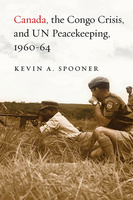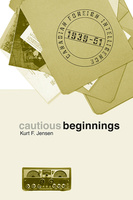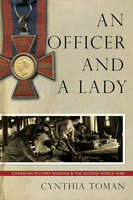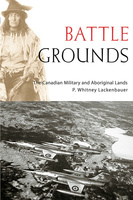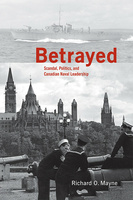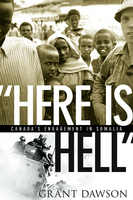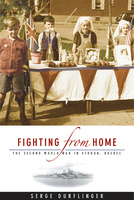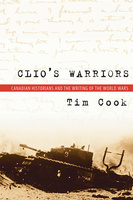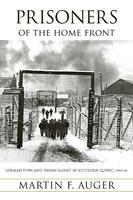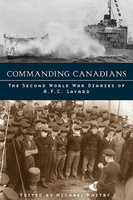Pearson's Peacekeepers
Canada and the United Nations Emergency Force, 1956-67
Pearson’s Peacekeepers describes Canada’s role in the first peacekeeping effort mounted by the UN and uncovers realities, and challenges, that lie beneath the myth of Canada’s peacekeeping mission.
Canada, the Congo Crisis, and UN Peacekeeping, 1960-64
Canada, the Congo Crisis, and UN Peacekeeping, 1960-64 reveals the complex web of influences that shaped Canada’s relationship with Africa and its involvement in UN peacekeeping.
The Politics of Procurement
Military Acquisition in Canada and the Sea King Helicopter
A history of failed attempts to replace the Sea King maritime helicopter reveals the political nature and shortcomings of the Canadian defence procurement process.
Kiss the kids for dad, Don’t forget to write
The Wartime Letters of George Timmins, 1916-18
The letters of Lance-Corporal George Timmins, who served in the Canadian Expeditionary Force on the Western Front, offer a rare glimpse into the life and relationships, at home and abroad, of an ordinary Canadian soldier.
Cautious Beginnings
Canadian Foreign Intelligence, 1939-51
A convincing portrait of Canada's active role in Second World War intelligence gathering.
Crisis of Conscience
Conscientious Objection in Canada during the First World War
The first and only book about the Canadian pacifists who refused to fight in the Great War.
An Officer and a Lady
Canadian Military Nursing and the Second World War
Cynthia Toman analyzes how gender, war, and medical technology intersected to create a legitimate role for women in the masculine environment of the military and explores the incongruous expectations placed on military nurses as “officers and ladies.”
A Leaf upon the Sea
A Small Ship in the Mediterranean, 1941-1943
Here is the tale of the smallest surface ships in the Mediterranean Sea front of World War II, and the naval officers who played vital roles in making possible the successes of the larger squadrons.
Russia in Pacific Waters, 1715-1825
A Survey of the Origins of Russia's Naval Presence in the North and South Pacific
Gunboat Frontier
British Maritime Authority and Northwest Coast Indians, 1846-1890
Gunboat Frontier presents a different interpretation of Indian-white relations in nineteenth-century British Columbia, focusing on the interaction of West Coast Indians with British law and authority.
“Here Is Hell”
Canada's Engagement in Somalia
One of the first scholarly examinations of the Somalia operation, this book will undoubtedly play a seminal role in informing further scholarly debate on this important period in Canada’s military and diplomatic past.
Fighting from Home
The Second World War in Verdun, Quebec
A comprehensive, at times intimate, portrait of Verdun and Verdunites, both English and French, during the Second World War.
Clio's Warriors
Canadian Historians and the Writing of the World Wars
Acclaimed historian and author Tim Cook (At the Sharp End) analyses where the practice of academic military history has come from and where it needs to go.
Journalism of Attachment
Dutch Newspapers during the Bosnian War
Drawing on an extensive content analysis of news coverage about the Bosnian war, this study describes the phenomenon of “journalism of attachment” as reflected in Dutch newspapers covering the Bosnian war.
Prisoners of the Home Front
German POWs and "Enemy Aliens" in Southern Quebec, 1940-46
Detailing the day-to-day affairs of Germans civilians and POWs in Canadian internment camps camps during the Second World War, this book fills an important void in our knowledge of the Canadian home front.
Commanding Canadians
The Second World War Diaries of A.F.C. Layard
Commander A.F.C. Layard, RN, wrote almost daily in his diary from 1913 until 1947. The pivotal 1943-45 years of this edited volume offer an extraordinarily full and honest chronicle, revealing Layard’s preoccupations, both with the daily details and with the strain and responsibility of wartime command at sea.
Hometown Horizons
Local Responses to Canada's Great War
Alive with personal stories, this book considers how people and communities on the Canadian home front perceived the Great War.


